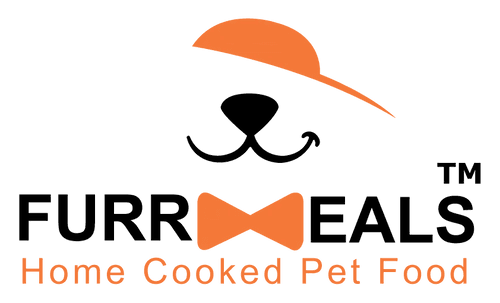Diet is crucial when treating dogs with kidney disease. Because dogs with kidney disease frequently do not feel well, the first task is often to get them to eat something.
Kidney disease can make dogs sick and cause ulcers in their mouth or stomach, making food difficult to eat. A feeding tube may be necessary to provide nutrients to dogs with severe kidney disease.
Once your dog's condition improves, you can focus on providing more optimal nourishment. A kidney diet for dogs must satisfy a variety of requirements. Here's a guide that covers kidney diet for dogs.
What is Kidney Failure in Dogs?
Chronic kidney failure, chronic renal failure, chronic kidney disease (CKD), and chronic renal disease are all terms used to describe conditions characterized by decreasing kidney function in dogs.
The kidneys in healthy dogs perform various vital functions, including filtering toxins from the blood. Chronic renal disease causes your dog's kidneys to perform less effectively over time. When a dog's kidneys fail, they cannot effectively clear toxins from the system, resulting in a buildup of poisons in the blood.
While there is no cure for chronic kidney disease in dogs, in many cases, the condition can be managed with the assistance of a therapeutic diet. Depending on the specific circumstances, this diet may help your pet enjoy a good quality of life for months.
What are some of the most common symptoms of kidney disease in a dog?
- Loss of appetite
- Oral pain due to ulcers
- Overall malfunction of processing wastes in the kidneys
- Metabolic acidosis
- Low glomerular filtration rate
How is kidney failure or disease treated in dogs?

If a serious illness is suspected, your veterinarian will thoroughly examine your dog (including nutritional consultation). If your dog is diagnosed with chronic kidney disease, the severity of the condition and a variety of specific criteria, such as age and health, will be considered before the veterinarian prescribes proper treatment. Dietary adjustments or limitations, as well as drugs, are frequently used to treat kidney disease. While medication generally alleviates symptoms of kidney disease in a dog, a therapeutic diet can help halt disease development and lessen the pressure on your dog's kidneys.
What foods are good for dogs with kidney failure?
Renal, or kidney-friendly, food for dogs has special attributes, and it can be confusing for a worried dog owner to understand all the various weights and restrictions involved. Put simply, a kidney diet for pets supports the kidneys while providing your dog with all the nutrition it needs to live and function happily.
Generally speaking, a kidney diet for pets has:
- High water and moisture content. Staying hydrated is essential for the kidneys, which do not work correctly without plenty of water to make urine.
- Low protein levels. Protein creates waste products that are difficult for damaged kidneys to process; therefore, limiting protein consumption relieves the burden.
- Low phosphorus levels. Dogs with renal illness tend to accumulate phosphorus because the kidneys are essential in filtering phosphorus from urine. Reducing phosphorus in the diet has a considerable benefit.
- Low sodium content. Salt can exacerbate symptoms of kidney disease in a dog.
- Omega 3 fatty acids. The vital AHAs and DHAs found in fish oil, for instance, reduce inflammation in dogs and improve their kidney function.
- Delicious flavors. Sometimes, dogs with kidney failure feel too ill to eat. A tasty fat booster (such as chicken skin) makes the food irresistible!
Key takeaways for managing CKD
Managing chronic kidney disease in dogs may initially seem overwhelming. However, with a good understanding of your dog’s dietary needs, you can significantly enhance their quality of life and longevity.
Key nutritional goals include:
- Opt for a high-moisture diet such as canned or fresh foods.
- Enhance the diet by incorporating EPA and DHA, along with antioxidant-rich foods.
- Restrict phosphorus and protein intake.
- Choose proteins with high biological value.
- Ensure adequate water intake for proper hydration.
Try adding FurrMeals Chicken Bone Broth to your dog’s meals for an extra hydration boost. This vet-approved, slow-cooked broth is
- Low in Phosphorus: Gentle on compromised kidneys.
- Hydration Hero: Encourages water intake for dogs who avoid drinking.
- Palatable & Nutritious: Ideal for picky eaters and even those with mouth ulcers.
Simply warm and pour over kibble or mix with prescribed renal food. Always consult your vet before introducing new supplements.
What is the best food to feed my dog with kidney failure?
Your veterinarian will suggest the best food to assist your dog in fighting kidney damage or disease progression. While each dog is unique, the kidney diet for pets recommended by your veterinarian will be based on the degree and course of the problem and your dog's overall health and age.
Most conventional dog diets will likely contain excessive phosphorus and protein levels for dogs with chronic renal illness. That being stated, your veterinarian may be able to provide prescribed therapeutic diets. Specially made prescription diets are intended to cover your dog's nutritional needs while limiting sodium, phosphorus, and protein. Consult your veterinarian to determine which is best for your dog.
Also Read: Diabetes in Dogs: Symptoms, Prevention & Management


